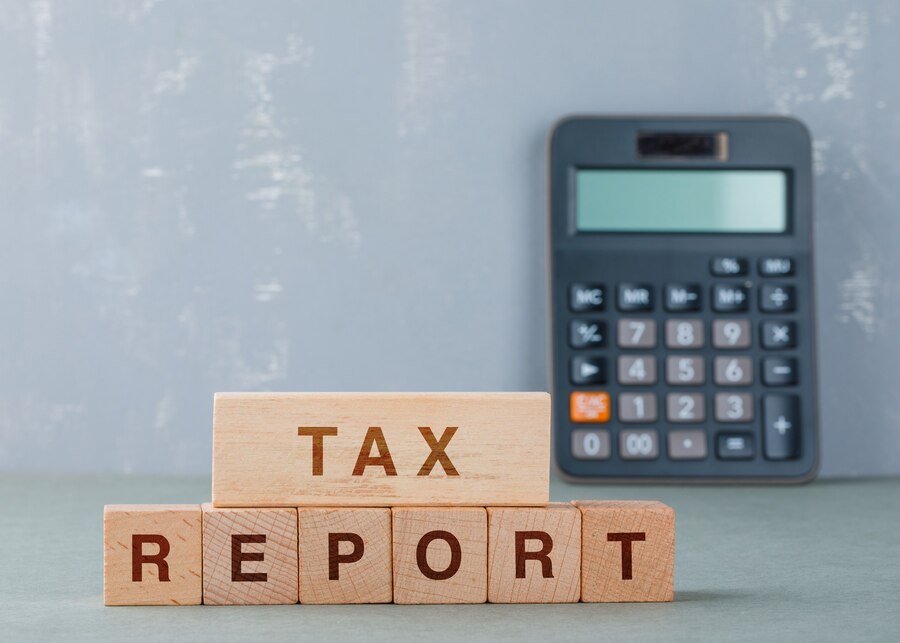Small Business Survival In The Digital Age: Making Sense Of The Income Tax Assessment Act
6 Mins Read
Published on: 17 January 2024
Last Updated on: 13 November 2024

toc impalement
Going through the digital landscape as a small business owner can often feel like sailing through uncharted waters, especially when it comes to understanding the complexities of the Income Tax Assessment Act.
This pivotal piece of legislation, while crucial for your business’s legal and financial health, can seem complex rules and clauses. But it doesn’t have to be an insurmountable challenge.
In this era, where digital prowess is as important as your core business strategy, making sense of the Income Tax Assessment Act is a strategic advantage. You’re not alone in this, though. Many small business owners, perhaps just like you, often find themselves at a crossroads, trying understand tax laws while juggling the demands of a digital-first business environment.
In this blog, we’ll discuss tax deductions that are often missed to leveraging digital tools for seamless tax compliance.
What Is The Income Tax Assessment Act?

The Income Tax Assessment Act is the legal framework governing how your business’s income is taxed. It’s a guidebook for managing your business’s financial responsibilities to the government.
At its core, the act details how income is calculated, what counts as income, and the various tax rates applicable based on the amount of income your business generates.
Key Components For Small Businesses
- Taxable Income Determination: This is where the act outlines what income is taxable and what isn’t. It’s crucial for you to know this because it directly affects your bottom line. For instance, revenue from sales is taxable, while some forms of government grants may not be.
- Deductions and Allowances: Here’s some good news – not all your income is taxed. The act allows for certain deductions and allowances, which means you can subtract specific expenses from your revenue before calculating your tax. These might include business-related expenses, like advertising costs in your latest digital marketing campaign or the purchase of new software.
- Tax Rates and Slabs: Depending on your business’s income, different tax rates apply. The act sets out these rates in a progressive manner, meaning the more you earn, the higher the rate of tax you might pay.
- Compliance Requirements: This part is all about what you need to do to stay on the right side of the law, like filing tax returns, maintaining records, and meeting deadlines.
Each clause and subsection in the Income Tax Assessment Act is there to guide you in managing your business’s tax affairs. Ignoring these details can lead to costly mistakes. For example, not keeping proper records as stipulated in the act can make tax time a nightmare, especially if you’re audited.
On the other hand, a deep understanding of this act helps you to optimize your tax position. This might mean consulting a knowledgeable personal tax accountant in Denver or dedicating time to understand the act yourself. Either way, the effort pays off in ensuring your business’s financial health and compliance.
Digital Economy Adaptations
In the digital age, certain aspects of the Income Tax Assessment Act have evolved. For example:
- Digital Revenue Recognition: With more businesses shifting online, the act now considers digital revenues, like income from online sales or digital services, in the same realm as traditional income sources.
- E-commerce and Taxation: If you’re operating in e-commerce, it’s crucial to understand how your online transactions are taxed. The act has provisions that address this, ensuring that digital and physical businesses are taxed on an even playing field.
Why The Income Tax Assessment Act Matters To You

As a small business owner, you’re already juggling numerous responsibilities. Now, the Income Tax Assessment Act is something that might not be at the top of your list but is crucial for your business’s financial health and legal compliance. Understanding this act is like securing the financial backbone of your business.
The Backbone Of Financial Planning And Compliance
The Income Tax Assessment Act is the framework upon which your business’s financial stability rests. This act is pivotal in defining how your profits are taxed, what deductions you can claim, and how you report your income.
Whether you’re consulting a personal tax accountant in Denver or managing your finances in-house, a solid grasp of this act ensures you’re not leaving money on the table or, worse, inadvertently stepping into legal pitfalls.
Impact On Your Business’s Financial Health
By understanding the nuances of this act, you can make informed decisions that positively impact your bottom line. It’s not just about paying taxes; it’s about understanding how different aspects of the act can influence your financial strategies.
From claiming the right deductions to understanding how different business decisions affect your tax obligations, this act is integral to your financial playbook.
Common Misunderstandings And Overlooked Aspects
Many small business owners, perhaps like yourself, might feel intimidated by the complex language of the Income Tax Assessment Act 1997. This intimidation can lead to common misunderstandings.
For instance, the act has specific provisions on depreciating assets and home-based business expenses that are often overlooked. Not leveraging these can mean missing out on valuable tax advantages.
Another aspect frequently misunderstood is the difference between personal and business expenses. This is particularly tricky for small businesses where personal and business finances often intertwine. Misclassifying these expenses can lead to issues with tax authorities, which is why understanding the delineation the act provides is crucial.
Strategic Tax Planning For Businesses

Some practical strategies can help you leverage the Income Tax Assessment Act for your benefit. By understanding and applying these strategies, you’ll not only comply with the law but also optimize your financial health.
What Are Deductions And Credits?
You’ve probably heard these terms thrown around, but do you know how they can work in your favor? Deductions reduce the amount of your income that’s assessed to tax under the Income-Tax Act 1961, which can significantly lower your tax bill.
Think about expenses like office supplies, business travel, or even a part of your home internet bill if you’re working remotely. These can all be potential deductions. And then there are tax credits, which directly reduce the amount of tax you owe. For example, if you’re implementing eco-friendly practices in your business, you might be eligible for certain environmental tax credits.
Maximizing Tax Exemptions
Exemptions are specific amounts that are excluded from your taxable income. It’s like having a portion of your income that’s not even considered for tax purposes. For small businesses, there are various exemptions available, such as those related to research and development. Staying informed about these can help you save a considerable amount of money.
Other Tips For Strategic Tax Planning
Here’s where you can gain an edge:
- Utilize Accounting Software: Modern digital tools can be a lifesaver. They not only keep your financial records organized but also help identify potential deductions and credits you might miss otherwise.
- Understand the Difference between Employees and Contractors: This is crucial. Misclassifying can lead to significant tax implications. Ensure you’re clear about this to avoid any unnecessary tax burdens.
- Keep Impeccable Records: This might seem obvious, but it’s often overlooked. Keep detailed records of all your expenses, no matter how small. These records can be incredibly beneficial when it comes to claiming deductions.
- Plan for Tax Payments: Don’t let tax payments be a surprise. Plan them throughout the year to avoid a cash crunch when the tax deadline approaches.
- Seek Professional Advice: Sometimes, the best strategy is to consult with a tax professional. They can offer personalized advice tailored to your specific business situation.
Read Also:


















Comments Are Closed For This Article